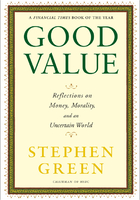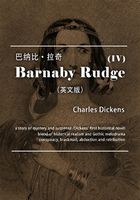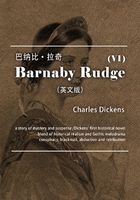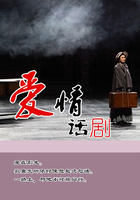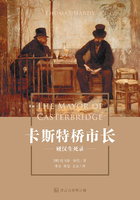The morning after the conductor's body was found, Brunetti arrived at his office a bit before nine, to discover that an event almost as marvellous as that of the night before had transpired: his immediate superior, Vice-Questore Giuseppe Patta, was already in his office and had been calling for Brunetti for almost half an hour. This fact was revealed to him first by the porter who stood just inside the entrance to the building, then by an officer he met on the stairs, then by the secretary who worked for him and the two other commissarios of the city. Making no attempt to hurry, Brunetti checked his mail, phoned the switchboard to see if there had been any calls, and at last went down the flight of stairs that led to his superior's office.
Cavaliere Giuseppe Patta had been sent to Venice three years before in an attempt to introduce new blood into the criminal justice system. In this case, the blood had been Sicilian and had proved to be incompatible with that of Venice. Patta used an onyx cigarette holder and had been known, upon occasion, to carry a silver-headed walking stick. Though the first had made Brunetti stare and the second laugh, he tried to reserve judgement until he had worked long enough with the man to decide if he had a right to these affectations. It had taken Brunetti less than a month to decide that though the affectations did suit the man, he had little right to them. The vicequestore's work schedule included a long coffee each summer morning on the terrace of the Gritti, and, in the winter, at Florian's. Lunch was usually taken at the Cipriani pool or Harry's Bar, and he usually decided at about four to 'call it a day'. Few others would so name it. Brunetti had quickly learned, as well, that Patta was to be addressed, at all times, as 'Vice-Questore' or the even grander 'Cavaliere', the provenance of which title remained obscure. Not only did he insist that his title be used, but he had to be addressed formally as lei, leaving it to the rabble to call one another by the familiar, tu.
Patta preferred not to be disturbed by any of the more distressing details of crime or other such messiness. One of the few things that could drive him to run his fingers through the graceful curls at his temples was a suggestion in the press that the police were in any way lax in their duties. It did not matter what the press chose to comment on: that a child had managed to slip through a police cordon to give a flower to a visiting dignitary or that notice had been taken of the open sale of drugs by African street vendors. Any suggestion that so little as hinted at anything less than a police stranglehold on the inhabitants of the city sent Patta into paroxysms of accusation, most of which fell upon his three commissarios. His ire was usually expressed in long memos to them, in which the crimes of omission by the police were made to sound infinitely more heinous than those of commission by the criminal population.
Patta had been known, as the result of a suggestion in the press, to declare various 'crime alerts', in which he singled out a particular crime, much in the way he would select an especially rich dessert from the cloth-draped sweet table in a restaurant, and announced in the press that, this week, the crime in question would be wiped out or, at least, minimized. Brunetti could not, when he read of the most recent 'crime alert'–for this was information that was generally revealed to him only by the press–help but think of the scene in Casablanca in which the order was given to 'round up the usual suspects'. That was done, a few teenagers were sentenced to jail for a month or so, and things went back to normal until the press's attentions once again provoked an 'alert'.
Brunetti often mused that the crime rate in Venice was low–one of the lowest in Europe and certainly the lowest in Italy–because the criminals, and they were almost always thieves, simply didn't know how to get away. Only a resident could navigate the spiderweb of narrow calles, could know in advance that this one was a dead end or that one ended in a canal. And the Venetians, the native population, tended to be law-abiding, if only because their tradition and history had given them an excessive respect for the rights of private property and the imperative need to see to its safekeeping. So there was very little crime, and when there was an act of violence or, much more rarely, a murder, the criminal was quickly and easily found: the husband, the neighbour, the business partner. Usually all they had to do was round up the usual suspects.
But Wellauer's death, Brunetti knew, was different. He was a famous man, no doubt the most famous conductor of the age, and he had been killed in Venice's little jewel of an opera house. Because it was Brunetti's case, the vice-questore would find him directly responsible for any bad publicity that might attach to the police.
He knocked on the door and waited to be told to enter. When the shout came, Brunetti pushed open the door and saw Patta where he knew he would be seated, poised as he knew he would find him, sitting behind his enormous desk, bent over a paper that was made important by the scrutiny he gave it. Even in a country of handsome men, Patta was shockingly handsome, with a chiselled Roman profile, wide-spaced and piercing eyes, and the body of an athlete, though he was well into his fifties. He preferred, when photographed for the papers, to be taken in left profile.
'So you've finally come,' Patta said, suggesting that Brunetti was hours late rather than on time. 'I thought I'd have to wait all morning for you,' he added, which Brunetti thought was overplaying the role. When Brunetti made no response to either remark, Patta demanded, 'What have you got?'
Brunetti pulled that morning's Gazzettino from his pocket and answered, 'The paper, sir. It's right here on page one.' Then, before Patta could stop him, he read out, 'Famous Maestro Found Dead. Murder Suspected.' He offered the paper to his superior.
Patta kept his voice level but dismissed the paper with a wave. 'I've already read that. I meant what have you found out?'
Brunetti reached into the pocket of his jacket and pulled out his notebook. There was nothing written in it except for the name, address, and phone number of the American woman, but so long as he was kept standing in front of the seated Patta, there was no way the other man could see that the pages were virtually empty. Pointedly, he wet the finger of one hand and leafed slowly through the pages. 'The room was unlocked, and there was no key in the door. That means that anyone could have gone in or out at any time during the performance.'
'Where was the poison?'
'In the coffee, I think. But I won't know until after the autopsy and the lab report.'
'When's the autopsy?'
'This morning, I think. At eleven.'
'Good. What else?'
Brunetti turned a page, exposing fresh emptiness. 'I spoke to the singers at the theatre. The baritone saw him, but only to say hello. The tenor says he didn't see him, and the soprano says she saw him only when she came into the theatre.' He glanced down at Patta, who waited. 'The tenor's telling the truth. The soprano's lying.'
'Why do you say that?' Patta snapped.
'Because I think it's true, sir.'
With exaggerated patience, as if he were speaking to an especially slow child, Patta asked, 'And why, Commissario, do you think it's true?'
'Because she was seen going into his dressing room after the first act.' Brunetti didn't bother to clarify that this was only a suggestion from a witness, not yet confirmed. His interview had suggested she wasn't telling the truth, perhaps about that, perhaps about something else.
'I also spoke to the director,' Brunetti continued. 'He had an argument with the conductor before the performance began. But he didn't see him again during the performance. I think he's telling the truth.' Patta didn't bother to ask him why he thought this.
'Anything else?'
'I sent a message to the police in Berlin last night.' He made a business of leafing through his notebook. 'The message went out at –'
'Never mind.' Patta cut him off. 'What did they say?'
'They'll fax down a full report today, any information they have on Wellauer or his wife.'
'What about the wife? Did you speak to her?'
'Not more than a few words. She was very upset. I don't think anyone could have talked to her.'
'Where was she?'
'When I spoke to her?'
'No, during the performance.'
'She was sitting in the audience, in the orchestra. She said she went back to see him after the second act but got there too late to speak to him, that they never spoke.'
'You mean she was backstage when he died?' Patta asked with an eagerness so strong Brunetti almost believed the man would need little more to arrest her for the crime.
'Yes, but I don't know whether she saw him, whether she went into the dressing room.'
'Well, make it your business to find out.' Even Patta realized that his tone had been too harsh. He added, 'Sit down, Brunetti.'
'Thank you, sir,' he said, closing his notebook and slipping it into his pocket before taking a seat opposite his superior. Patta's chair, he knew, was a few centimetres higher than this one, something the vice-questore undoubtedly regarded as a delicate psychological advantage.
'How long was she back there?'
'I don't know, sir. She was very upset when I spoke to her, so her story wasn't very clear.'
'Could she have gone into the dressing room?' Patta asked.
'She might have. I don't know.'
'It sounds like you're making excuses for her,' said Patta, then added, 'Is she pretty?' Brunetti realized Patta must have found out about the difference in age between the dead man and his widow.
'If you like tall blondes,' Brunetti said.
'Don't you?'
'My wife doesn't permit me to, sir.'
Patta thrust around for a way to pull the conversation back together. 'Did anyone else go into the dressing room during the performance? Where did the coffee come from?'
'There's a bar on the ground floor of the theatre. Probably from there.'
'Find out.'
'Yes, sir.'
'Now pay attention, Brunetti.' Brunetti nodded. 'I want the name of anyone who was in the dressing room, or near it, last night. And I want to find out more about the wife. How long they've been married, where she comes from, that sort of thing.' Brunetti nodded.
'Brunetti?' Patta suddenly asked.
'Yes, sir?'
'Why aren't you taking notes?'
Brunetti permitted himself the smallest of smiles. 'Oh, I never forget anything you say, sir.'
Patta chose, for reasons of his own, to give this a literal reading. 'I don't believe what she told you about not seeing him. People don't start to do something and then change their minds. I'm sure there's something here. It probably has something to do with the difference in their ages.' It was rumoured that Patta had spent two years studying psychology at the University of Palermo before changing to the law. But it was unblemished fact that, after an undistinguished career as a student, he had taken his degree and, soon thereafter, as a direct result of his father's very distinguished career in the Christian Democratic party, had been appointed a vice-commissario of police. And now, after more than twenty years, he was Vice- Questore of the police of Venice.
Patta having apparently finished with his orders, Brunetti prepared himself for what was coming, the speech about the honour of the city. As night the day, the thought gave birth to Patta's words. 'You might not understand this, Commissario, but this is one of the most famous artists of our era. And he was killed here in our city, Venice'–which name never failed to sound faintly ridiculous coming from Patta, with his Sicilian accent. 'We have to do everything in our power to see that this crime is solved; we cannot allow this crime to blot the reputation, the very honour, of our city.' There were times when Brunetti was tempted to take notes of what the man said.
As Patta continued in this vein, Brunetti decided that if something was said about the glorious musical history of the city, he'd take Paola flowers that afternoon. 'This is the city of Vivaldi. Mozart was here. We have a debt to pay to the world of music.' Irises, he thought; she liked them best of all. And she'd put them in the tall blue Murano vase.
'I want you to stop whatever you're working on and devote yourself entirely to this. I've looked at the duty rosters,' Patta continued, surprising Brunetti that he even knew they existed, 'and I've assigned you two men to help you with this.' Please let it not be Alvise and Riverre, and I'll take her two dozen. 'Alvise and Riverre. They're good, solid men.' Roughly translated, that meant they were loyal to Patta.
'And I want to see progress in this. Do you understand?'
'Yes, sir,' Brunetti replied blandly.
'Right, then. That's all. I've got work to do, and I'm sure you've got a lot to get busy with.'
'Yes, sir,' Brunetti repeated, rising and going towards the door. He wondered what the parting shot would be. Hadn't Patta taken his last vacation in London?
'And good hunting, Brunetti.'
Yes, London. 'Thank you, sir,' he said quietly, and let himself out of the office.


